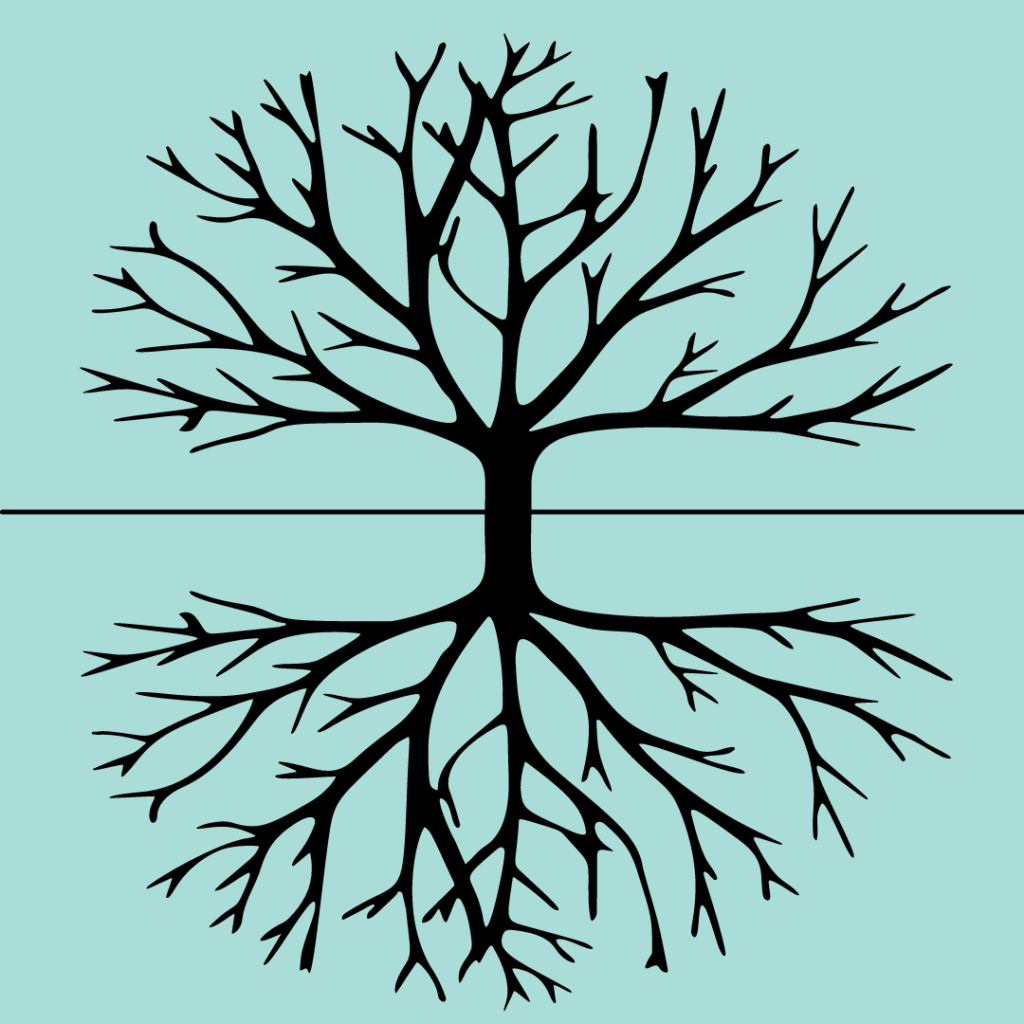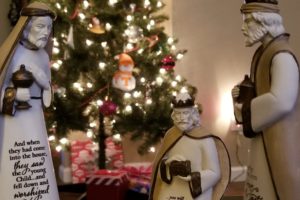Table of Contents
The First Dad, Adam
This week let’s look into the first Bad Dad of the Bible, Adam. You should see that the outcomes aren’t always in our control, but our children don’t feel our lack of presence.
Last time, I gave you an article about the scam of parenting. I did that because we all put so much pressure on ourselves to succeed as parents. We all have our reasons. For example, my parents’ motto and, in many ways, what keeps them glued together is to do better for the next generation. Think about the pressure. Most of us are constantly seeking to help our kid find their “thing.” You know “the thing” that will bring them joy, happiness, and riches in life. And for what? Why do we pour ourselves out?
Because culture tells us to?
Maybe we want them to take care of us?
Our kids deserve our every effort to experience the fullness and joys of life?
Avoid pain?
Wisdom from Experience
Let me tell you. I have 4 degrees in 3 fields. After being a stay-at-home dad for nearly 6 years, my current job is in none of those fields and has almost nothing to do with those degrees. You know what. There has been pain. Many days I wake up and wish it were the pain of a kidney stone. There has been joy. Have you ever received a kiss of compassion from your son and daughter? I have triumphed and been crushed by systems that I did not design, nor would I create them. I received every privilege (shout-out to my parental units). But us, parents, giving our children all these things does not make a full life. Consider the wisest man, Solomon. I used to imagine him writing Ecclesiastes as a wise old man. However, as I have aged, I see that he is in a mid-life crisis.
So I hated life because the work that is done under the sun was grievous to me. All of it is meaningless, a chasing after the wind.
Ecclesiastes 2:17
And that brings us to Adam, the first father. You might be wondering why we didn’t begin with him. There isn’t much about his child-rearing ability or experience (shocking, I know). What we do get is a story about his oldest sons. So instead of imagining life in the first family, I thought it prudent to examine one of the outcomes. Perhaps the murder of Abel was a failure as a father. But in my reading of the text, it is far more likely that these characters are full adults and thus responsible for their actions.
So let’s talk about two things
- The peril of passing on the faith.
- Adult children are responsible for themselves.
Short Story Time
Before we dive into the deep end, here’s a quick rundown of the story found in Genesis 4.
Adam and Eve are kicked out of the garden and later…? Eve gives birth to Cain, the farmer, and later Abel, the shepherd.
(DISCLAIMER) Remember, with all the stories of Genesis, there is more going on than any surface reading or interpretation.
Anyways Cain and Abel decide to bring an offering to God. Abel does a better job. Cain gets angsty and kills his brother. God curses Cain, and he goes on to have a lineage that lasts until the Flood.
1) The peril of passing on the faith.
The story is about a faith event. As the text indicates, Cain comes up with the idea to offer God some of his produce. Abel tags along and shows up his older brother. Older brothers out there will feel this. Younger brothers will get some joy.
Here is the thing, though. God has yet to institute any offering system or rules. Instead, God offers presence at the event, giving Abel a bigger smile. At this point, Cain and Abel have taken some ownership in their relationship with God. This relationship and faith are now distinct from their parents and are likewise re-interpreted through the brothers’ experience.
As a dad, I hope my children re-interpret their faith through their lens. When we think of passing on our faith, re-interpretation or new ownership keeps it alive and fresh. The problem, however, is the lack of Adam’s presence. The silence that runs through the fathers of the Bible is killer. Where is Adam to give assent or guidance as their elder? While Adam accomplished the base goal of passing on the faith, he has failed to remain attuned to the goings-on of his children.
Back to the Present
Back to the present day real quick. SOOOOOOOOOOOOOOOOOOOOOOOOOOOO many of my friends’ parents have disengaged from church. It has become something that my wife and I regularly discuss and something we are already planning for and guarding against. Look, I get it. They are tired or want to have some rest or some other at least half-decent reason that most of us can get on-board with. But what happens when they don’t show is that the church loses pieces of resonance and wisdom. Resonance is slightly different than tradition, but the two are often linked (I will write more about this later).
When we lose resonance, we end up accelerating and alienating (read Dr. Rosa). We accelerate because we are trying to attain resonance; however, the outcome is alienation of those who cannot similarly accelerate. A by-product of the baton pass is change and re-interpretation.

Picture a tree. Faith with resonance grows deeper roots and new limbs. When faith combines with acceleration and alienation, a new tree grows every time – slightly more distinct from the parent with each passing generation.
Since the peril of a passed-on faith is change, what is the older generation’s reaction? Like many of our current aging populace, Adam doesn’t accept or embrace the difference to incorporate and grow. Instead, they cast the seeds out to figure it out independently. Is it any wonder more and more kids are choosing something other than church? By design, we cast them out as seeds.

I am grateful for the effort that passed on the faith to me. But it is lonely when my elders ducked out – just like Adam in this story.
2) Adult children are responsible for themselves.
So back to point two, which minorly refutes point one. Yeah, I see it. But it also lands on you too old people, not just us young-uns trying to dodge responsibility.
Part of being an adult in any era or civilization is taking personal responsibility for actions. God honors Cain’s agency as God curses Cain for Abel’s murder. Regardless of Adam’s foibles as a father, the fault lies with Cain.
Equal Parts Hopeful and Disheartening
Hearteningly, our children can overcome our worst moments (see the upcoming article on regret). It demonstrates that family of origin, despite many opinions, is not the end all be all. Rather family of origin and its faith story is only one part of the equation that makes up a person and what they choose to do.
What is disheartening is that even if we were perfect parents, passing on the faith, success, and family perfectly only partially affects the outcome. Fortunes fall into ruin after 3 generations. Which might lead you to ask why you are reading this and the point of the parenting effort?
Why pour yourself out for the brats that muck it up in the end? My argument has always been that faithful fatherhood is not a journey directed at our children. Instead, it is a journey into the redemption of your faith. Fatherhood is simply one of the most significant parts, and again, fatherhood is not what we do to our children but whom we explore in ourselves. The good, the bad, the perfect, the ugly are all part of our journey. The goal isn’t parenting success. Clearly, that is only a piece of the puzzle. It is peace within that flows out.
This peace is not some far-off achievable result. Rather, we receive it in the presence of the ones we love, who enjoy us for no discernible reason. From my studies, the fathers who walk this journey in faith offer themselves the best chance at peace. They receive not a time of decreased busyness but a time of fullness that tells us we spent our time well.
The Weight of Parenting
The weight of parenting today is too much. What if instead of helping our kid find their “thing,” receiving our faith, and progenerating the family line, we were a family. What if we defined family with a different view and that the fullness of family happened in peace, not scurrying to the next Baseball practice? Which, for parents with kids on my team, it is canceled for rain tomorrow. Are any of the “things” bad? No. But where does your faith lead you?
You are the adult and thus responsible for the actions, just as Cain and Abel were. Choose differently. Take it from me, someone who has hustled. The best stuff is not the hustle. We find the best stuff in the snuggles and the expenditure (maybe wasting) of time with the people who make our lives full.
Is it terrifying to take that leap? You bet. Let me give you one final story.
Final Story
I played on a High School State Championship Baseball Team. In my freshman year, the team was ranked #1 in the country. One time I had a conversation with a nurse whose son was also on the team as a freshman. She told me of the endless practices and work that go into making the team. I was familiar with the schedule as I had completed the grind myself. I offered her this research-backed wisdom. He should take at least 3 months off each year. No baseball allowed for 3 months. More anecdotal research articulates that 3 months is an eternity, and the truly great players will sneak into practice. (See, I just helped you know if your kid has found their thing). The other thing is that they are often better when they come back if they so choose. One article indicated pitchers had gained 5-7mph on their fastball. The data from the article wasn’t above reproach (small sample size and growth was not factored in/out) but still a stunning result for 3 months off instead of grinding out the reps.
The nurse dismissed me as you might be at this point in the article. But here is the thing. Rest allows peace and the essential things to come to us. In my faith, I wait for God to break into the world. Maybe that means inspiration or healing. Perhaps it is the simple reveal of presence.
Learning from Adam
We can learn from Adam the importance of the ebb and flow of rest. Adam worked when he should’ve been resting and rested when his children (adults at the time) needed him. Yes, we pass on the faith. We give away control. But that doesn’t mean we aren’t involved anymore. And maybe if we rested more often, we could be present in the moments that matter to save a life and prevent a curse.



